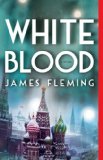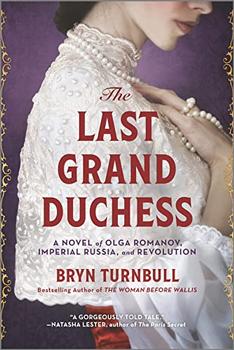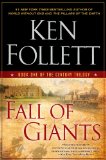Summary | Excerpt | Reviews | Beyond the book | Read-Alikes | Genres & Themes | Author Bio

Fleming explores the clash between
tradition and progress, class and culture in
White Blood, a gritty novel, intensely flavored
with both the elegance and terror of Russia on the
brink of civil war, that lures the reader in with an
almost lighthearted opening travelogue but that
inexorably gathers steam, drawing to a thrilling,
emotionally exhausting conclusion.
Charlie Doig, son of a Scots father and Russian
mother, is brought up near Smolensk until about
12-years of age when he and his mother move to
England where his father plans to join them.
Unfortunately, Doig senior catches the plague and
dies before joining his family in London, leaving
his proud Russian wife penniless, living on the
charity of relatives; and his son with a childish
desire to revenge his father's death, and make loads
of money into the bargain. Young Charlie's
plan is to capture the species
of flea that killed his father and force them to
breed so that he can infect rats, make serum
and thus make his fortune. As is the case with most
12-year-old grand schemes, the plan fails but in the
process Charlie discovers a passion for nature, and
thus is a naturalist
born.
Within a few pages we've skipped forward a decade to
find a larger-than-life Doig apprenticed to the
celebrated naturalist Hartwig Goetz as they travel
through the Far East looking for rare species, such
as a small but hitherto unknown beetle nicknamed
"The Wiz", whose heroic capture in a post office in
Burma makes Doig a legend in naturalists circles and
sends this man of big appetites into such excitement
that he can only be sated by a frenzied session at
the local brothel involving a number of lithesome
wenches and a bucket of eels.
"Six foot two, strong in the shoulder and broad in the chest. Wide Russian face, straight dark hair, stubble. Eyes of blue: not the loony blue of the German philosopher but steadier, more brutal, with flecks of iron and schist. Powerful high-boned wrists. Mangling stride. A rugged obnoxious nose. And proper Russian balls that swing like the planets. Nothing of the gherkin down there." - Doig's description of himself, from the opening pages of White Blood.
Thankfully, having established
Doig's lusty nature in the opening chapters, Fleming
allows the eels and other accoutrement to be put to
one side as the story moves to Charlie's
mother-country, to which he returns as war breaks
out with his newly acquired Mongolian sidekick,
Kobi. The family home, The Pink House, near
Smolensk in the West of Russia (a
photo of 1912 Smolensk), is occupied by a number of family relics and retainers,
and also by Doig's cousin Elizaveta who he hasn't seen for a
decade but who, in keeping with his character, he
falls head over heels in love with. Inconveniently,
she is affianced to another, a mutual childhood
acquaintance who has become a war hero, but these
are unsettled times and, happily for Doig, the
fiancé is assassinated just days before the wedding.
Not one to miss a chance Doig makes his move with
such speed that questions are asked as to whether he
might have been involved with the assassination, but
no matter, Doig and Elizaveta are in wedded bliss.
The day after the wedding two soldiers arrive asking
for shelter. Are these soldiers who they seem, or is
something more sinister afoot? As the plot thickens
following the arrest of the Tsar and his family,
Doig must ask himself at what point the Pink House
stops being a safe haven and becomes a trap no
better than that which he uses to catch elegant
bugs; but can he persuade his new wife to leave in
time to escape the Bolshoviks?
Interesting To Note: The title White Blood presumably alludes to the term White Russian which has multiple meanings. It can refer to a member of the Russian military force that opposed the Bolsheviks during the Russian Civil War (1918-21). It can also refer to a Russian who emigrated from Russia during or shortly after the Civil War. Lastly, it can refer to a person from Belarus (bela meaning white); Belarus is close to Smolensk, the location of the fictional Pink House.
![]() This review was originally published in The BookBrowse Review in February 2007, and has been updated for the
October 2008 edition.
Click here to go to this issue.
This review was originally published in The BookBrowse Review in February 2007, and has been updated for the
October 2008 edition.
Click here to go to this issue.

If you liked White Blood, try these:

by Bryn Turnbull
Published 2022
This sweeping novel takes readers behind palace walls to see the end of Imperial Russia through the eyes of Olga Nikolaevna Romanov, the first daughter of the last tsar.

by Ken Follett
Published 2011
The first novel in The Century Trilogy, Fall of Giants follows the fates of five interrelated families - American, German, Russian, English, and Welsh - as they move through the world-shaking dramas of the First World War, the Russian Revolution, and the struggle for women's suffrage.
Your guide toexceptional books
BookBrowse seeks out and recommends the best in contemporary fiction and nonfiction—books that not only engage and entertain but also deepen our understanding of ourselves and the world around us.